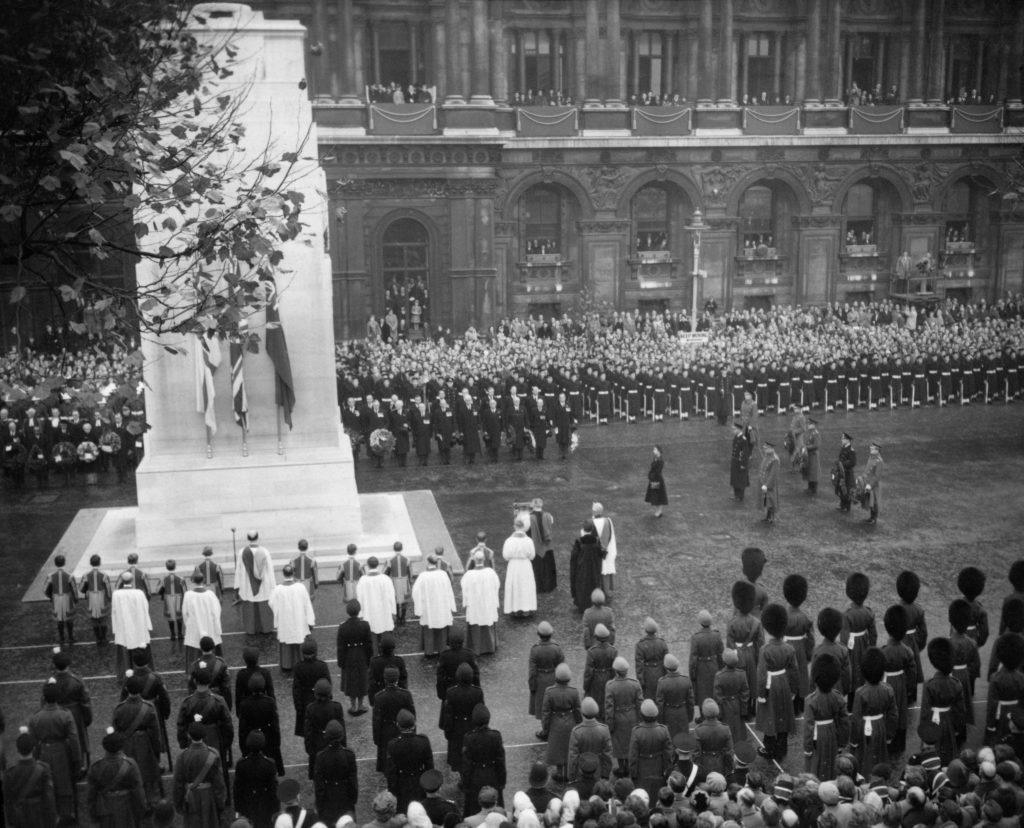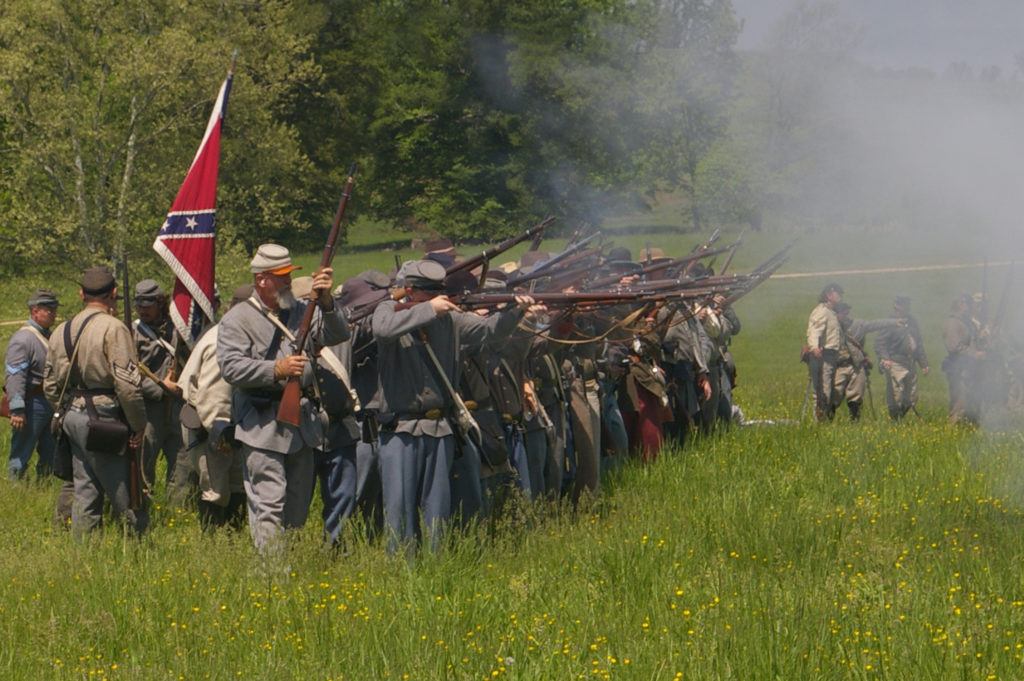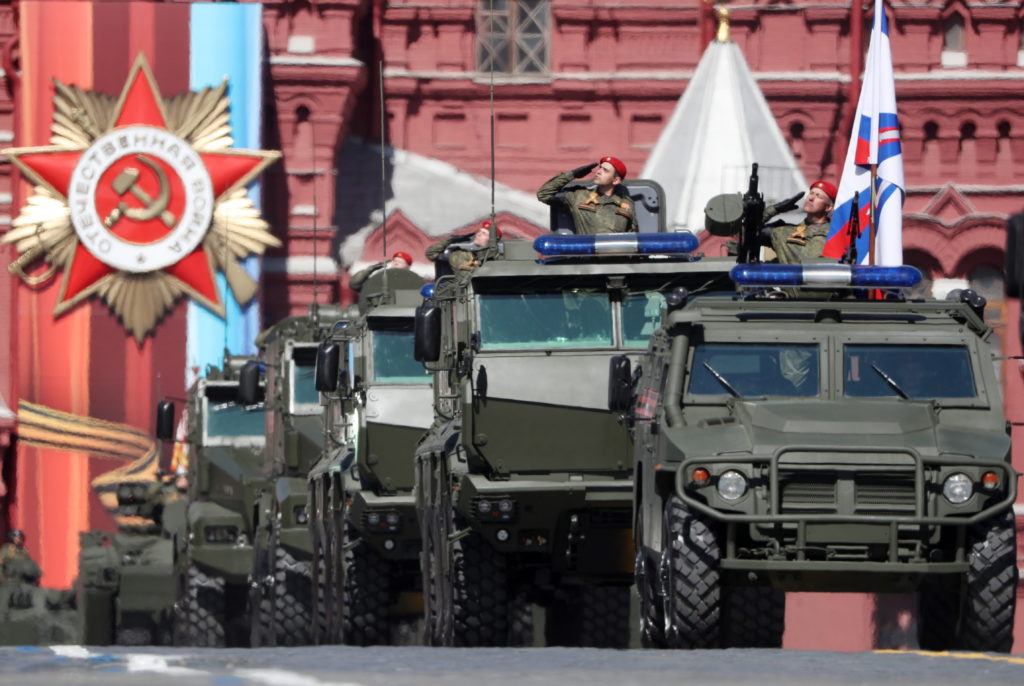Credit: John Giles/PA Archive/PA Images

November is my favourite month. Fog muffles the noise in central London where we live near the Thames.
It’s also a time of important rituals. Though it is being usurped by the American import Halloween, I look forward to Guy Fawkes Night and next weekend’s Remembrance Sunday. Together with the NHS, it’s the closest the UK has to a civic religion.
As a tepid kind of republican, I am not a fan of the Ruritanian flummery, in its military guise, which is at the heart of the proceedings on Whitehall. Nor, having written much about the roles of the Anglican, Lutheran and Orthodox churches in propagating war, am I unaware of the irony of the Bishop of London officiating at it. His Great War predecessor, Arthur Winnington-Ingram, used drums, flags and rifles on the steps of St Paul’s to recruit City clerks to the colours.[1. Michael Burleigh ‘Religion and the Great War’, Michael Howard (ed) A Part of History. Aspects of the British Experience of the First World War (London 2008) pp. 74-82]

A brief family history
Before anyone impugn my patriotism, some insight into my family may be in order.
My grandfather was a man of war. After impregnating a family servant, he spent three years fighting as an irregular for the Confederacy. Thereafter, he spent forty years as the Telegraph’s star war correspondent, shooting Mahdist ‘fuzzy wuzzies’ as well as antelope at Omdurman. A younger Churchill, who old grandpa knew well from the Boer War, organized his memorial service. It was attended by the likes of Conan Doyle, Conrad and Kipling.[2. Graeden Greaves, Wild Bennet Burleigh. The Pen and the Pistol (London 2012) is a good biography]
Grandfather had five sons, of whom my father was the youngest. My father fought in the Seaforth Highlanders in the Great War, and then was an RAF wing-commander in the Second. His three older brothers were young lieutenants, one with an MC, who were killed between 1914 and 1918. There is a memorial to them in Clapham’s Holy Trinity Church.[3. Traces of war in case too small to read it says ‘Bennett Burleigh, Lieutenant, Lancashire Fusiliers, James E Burleigh, Lieutenant, A&S Highlanders, MC, Robert Burleigh, Lieutenant, RAF]
Maybe for these familial antecedents, I have been an enthusiastic member of the government’s First World War senior advisory committee, which since 2013 has helped set the tone, and the shape of ongoing centennial commemorations. I’ve been impressed by the good judgment of my colleagues Lords Menzies Campbell and George Robertson, the former NATO secretary general, as well as by the former submariner, Lord Boyce, and our ex-fighter pilot colleague Lord ‘Jock’ Stirrup. We may have seen five Secretaries of State come and go, but the civil servants are eternal.
How the past is marshalled to shape the present
Throughout my career, I’ve been interested in how History is used to shape contemporary national identity. History and national memory are not identical, not least because there is no such thing as a collective consciousness. That point was made rather well by Maurice Halbwachs, who reached this conclusion after studying a British neurologist’s work on Great War men with head wounds. Aphasia did not mean not having memories, but a lack of context in which to locate them. Based on these findings he wrote that:
‘The various groups that compose society are capable at every moment of reconstructing their past, but as they reconstruct it, they distort it’.[5. David Rieff, In Praise of Forgetting. Historical Memory and its Ironies (New Haven 2017) pp. 23-24]
Public history does the same.
It was probably no coincidence that the Cameron government found £50 million down the back of a sofa for these WWI commemorations, shortly before the 2014 Scottish independence referendum. The ties of blood that bind us, etc. As a Londoner, I’ve marveled at the acute sensitivity to the ‘devolved administrations’ throughout the commemorations, while admiring campaigns to clean up our war memorials.
I have also been struck by how the causes of the war were eased aside, and the reluctance to include the role of commanders and generals rather than the safer subject of what little Joey’s great-grandpa did in the trenches. Though we will make much of the final hundred days that led to German capitulation in 1918, we won’t be touching the live rail that the war was, in Jock Stirrup’s words, a ‘strategic defeat’ since it had to be refought twenty years later. Instead, empathy is the watchword, as well as ‘inclusivity’.
Of course, it is naïve to imagine that what is both an exercise in cathartic plangency and an attempt to arrest the steady progress of the Somme and Passchendaele towards the oblivion of Marathon, Salamis or Hastings could be qualified. We know that behind the symbolic poppies were Vickers machine guns. One on display in the Imperial War Museum helpfully has steel rods fanning out from the muzzle to suggest what the gun meant to any man negotiating barbed wire in a blizzard of bullets.
The case for forgetting
I could also easily mount a defence of collective amnesia. There is too much remembering (of a kind) in many more troubled parts of the world. The Balkans, Ireland and the Middle East are grim examples of it. Far better to let Time quietly quell the rage that still rages from the battles of Karbala (680), Kosovo (1389) and the Boyne (1690).
How much happier the US would be if none of the sentimental confederate ‘Lost Cause’ guff had been allowed to flourish after the Civil War, a cult assembled by widowed southern belles. I was reminded of this when, on visiting my new job at Washington and Lee University in 2001, the head of department took me to the Lexington cemetery where Stonewall Jackson is buried. Spying people in 19th century costumes, I eagerly raised my camera, only to be told “I wouldn’t do that son since they’re the ones who want to bring back slavery.”

China provides a fascinating counter case. As we know, the Chinese are hypersensitive to the fact that the Japanese killed fifteen million of their people between 1937 and 1945. Who wouldn’t be, especially if you have been struck dumb by Lu Chuan’s 2009 movie City of Life and Death about the rape of Nanjing?
Yet this was not the case under either Mao Zedong or Deng Xiaoping. The former told visiting Japanese that it was not good “to apologise every day,” while joking that the “Japanese militarists and warlords” had done the Communists a huge favour by killing off the rival Nationalists for him.
For different reasons, in the 1980s Deng Xiaoping also didn’t “talk about the war” since he needed investment capital from Japan and South Korea. Only more recent China’s ascendancy to great power, and the rise of ultra-nationalists like Shinzo Abe (whose grandfather was convicted as a Grade A war criminal) has changed all that. If Chinese leaders, as Hu Jintao did, show the slightest weakness towards Tokyo in any maritime dispute, enraged nationalists send them calcium tablets to help them grow a backbone. There is no danger of that under Xi.[6. Richard McGregor, Asia’s Reckoning. China, Japan and the Fate of US Power in the Pacific Century (Oxford 2017) includes a marvelous account of these ‘memory wars’ in the region.]
Forgetting the past does not necessitate repeating it
States do indeed consciously decide to forget for George Santanya’s maxim “those who forget the past are condemned to repeat it” is glib and wrong. There are plenty of lessons from history we could dispense with, like those of Appeasement, for we do not live in a perpetual 1938, where diplomacy is synonymous with weakness.
Amnesia was the case in the “transition” from Franco to democracy in Spain after 1978, though the Left has been trying to subvert the deal, despite their fathers including a number of priest killers, while for the Right it is “forever yesterday.” Some people would like to demolish Franco’s memorial at the Valle de los Caidos, the most bombastic example of Catholic totalitarianism I have ever seen. Likewise, the Chilean dictator, Augusto Pinochet, would never have relinquished power in 1990, without an agreement to pass over acts of torture and murder. [7. Jeremy Treglown, Franco’s Crypt. Spanish Culture and Memory Since 1936 (London 2014) touches on some of these issues.]
Obviously, no one is arguing that when people commit atrocities, they should not be brought to justice. We have a live example of calculated amnesia as Vladimir Putin does his best to ignore the February and October Revolutions of 1917. There is nothing and no one with which Putin can identify in either, and Russian society includes conservative Orthodox fanatics who regard Tsar Nicholas II as a saint, and Communists who regard Lenin as a secular one, too. Better to stick with the safer ground of the Great Patriotic War, with a bit of Tsarist flummery and ubiquitous monks and priests mixed in, than to touch the live rail of the legacy of 1917.[8. See Michael Burleigh ‘Russia 1917-2017’ Foreign Policy magazine (imminent this week)]

So yes, next Sunday I won’t be attending the Cenotaph ceremonies, but I may dip into Kipling’s great poem “Recessional”.
Far-called, our navies melt away;
On dune and headland sinks the fire;
Lo, all our pomp of yesterday
Is one with Nineveh and Tyre!
Judge of the Nations, spare us yet,
Lest we forget – lest we forget’.
It echoes Ecclesiastes 1:11
‘There is no remembrance of former things; neither shall there be any remembrance of later things that are to come with those that shall come after’.










Join the discussion
Join like minded readers that support our journalism by becoming a paid subscriber
To join the discussion in the comments, become a paid subscriber.
Join like minded readers that support our journalism, read unlimited articles and enjoy other subscriber-only benefits.
Subscribe